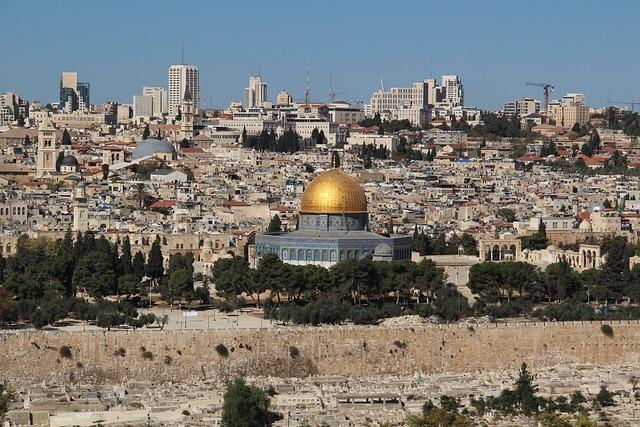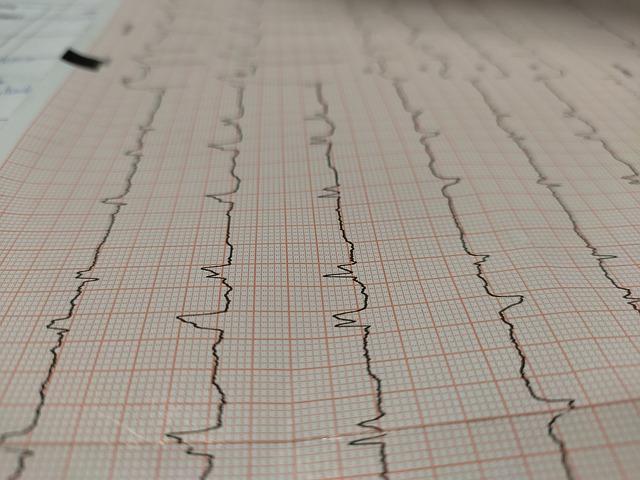In recent weeks,the international community has turned its attention to mali following a series of violent attacks claimed by an affiliate of Al Qaeda. As the Sahel region grapples with escalating insecurity, the motives behind thes attacks raise critical questions about the strategic objectives of extremist groups in Africa.this article delves into the current situation on the ground, examining the implications of al Qaeda’s involvement in Mali and the broader geopolitical landscape that enables such violence. By analyzing the group’s aspirations and the challenges faced by local and international forces, we aim to uncover what is at stake for Mali and the Sahel, and what these developments mean for global counterterrorism efforts.
Analysis of Al Qaeda’s Motivations in Mali
Al Qaeda’s presence in Mali can be traced to a complex interplay of local grievances, geopolitical dynamics, and a desire for ideological dominance. The group seeks to exploit long-standing tensions between various ethnic groups,especially in the northern regions,where poverty and marginalization have created fertile ground for extremist ideologies. By claiming responsibility for attacks, Al Qaeda aims to reinforce its narrative that it is the protector of disenfranchised communities, especially the Tuareg and Arab populations who feel abandoned by the Malian state.This strategy not only aims to gain local support but also attempts to destabilize governmental authority, paving the way for the establishment of a parallel system founded on extremist interpretations of Islamic law.
Additionally, the actions of Al Qaeda’s affiliate in Mali can be interpreted as part of a broader strategy to challenge foreign military presence and influence in the region, particularly that of Western powers. The group often frames its operations as a jihad against foreign intervention, utilizing propaganda to galvanize support among those wary of Western involvement in Mali’s political affairs. Key motivations include:
- Resistance to foreign intervention: al Qaeda portrays itself as a defender of Malian sovereignty against perceived imperialism.
- Promotion of jihadist ideology: The group aims to spread its radical interpretation of Islam, presenting itself as a legitimate voice for the oppressed.
- Establishing a caliphate: Long-term aspirations revolve around the creation of an Islamic state in Mali, contributing to the institution’s larger goals across the Sahel.

Overview of Recent Attacks and Their Implications
The recent attacks in Mali, claimed by an Al Qaeda affiliate, have sparked considerable concern regarding the stability of the region. These assaults highlight a disturbing trend where extremist groups leverage political unrest to expand their influence. The implications of such actions are profound, as they threaten not only the security of Mali but also the broader Sahel region. Notably, the timing and targets of these attacks suggest a calculated effort to undermine governmental authority and to instigate fear among civilians, possibly aiming to destabilize the existing political frameworks.
The motivations behind these attacks can be categorized into several key aspects:
- Territorial Control: Seeking to establish a foothold in areas with weak governance.
- Recruitment: Using violence to inspire fear and draw in new members.
- Resource Acquisition: Targeting local economies, particularly in regions rich in natural resources.
- Ideological Warfare: Promoting extreme interpretations of justice and governance to cement support.
| Aspect | Potential Impact |
|---|---|
| Stability of Governance | Increased power vacuum leading to anarchy. |
| Civilian safety | Heightened fear and possibility of mass displacement. |
| Regional Security | Potential spillover effects into neighboring countries. |

The Impact on Regional Security and Stability
The recent claim of responsibility for attacks in Mali by an affiliate of Al Qaeda underscores the precarious nature of security across the sahel region. as extremist groups exploit local grievances and inter-communal tensions, their actions not only threaten immediate lives but also destabilize broader socio-political structures. Key consequences include:
- escalation of Violence: Increased attacks lead to more military responses, amplifying cycles of violence.
- Increased Humanitarian Crises: Displacement and food insecurity grow as communities are uprooted.
- Undermining Local Governance: Governments struggle to maintain legitimacy and control in areas marked by conflict.
Moreover, the region’s security challenges have broader implications for international stability. The spillover effects of instability in Mali could strain neighboring countries, resulting in a ripple effect of insecurity. This interconnectedness highlights the necessity for a coordinated response, as local forces alone may not be sufficient to restore order. A comparison of the current situation can be illustrated through the following table:
| Country | Current Security Status | Impact of Extremism |
|---|---|---|
| Mali | High Alert | Increased attacks and displacement |
| Niger | Moderate Risk | Border tensions and migration issues |
| Burkina Faso | Growing Concern | Rising communal violence and insurgencies |

Responses from the Malian Government and International Community
the Malian government has condemned the recent attacks claimed by an Al Qaeda affiliate, describing them as a direct threat to national security and regional stability. In a statement issued by the Ministry of Security,officials emphasized the need for heightened vigilance and cooperation among security forces. They outlined a series of immediate responses to counter extremism, including:
- Increased military patrols in areas identified as hotspots for insurgent activity.
- Enhanced intelligence sharing with neighboring countries to preempt future attacks.
- Community engagement initiatives aimed at fostering local resilience against radicalization.
The international community has also responded, with various nations and organizations expressing solidarity with Mali.Analysts note that the situation has prompted discussions about reinvigorating peacekeeping missions in the Sahel region. Key international responses include:
| Entity | Response |
|---|---|
| United Nations | Calls for renewed commitment to peacekeeping operations. |
| European Union | Proposing increased funding for counter-terrorism measures. |
| United states | Offering logistical support and training to malian forces. |

Long-term Strategies to Counter Extremism in the Sahel
Addressing extremism in the Sahel region requires a multifaceted approach that prioritizes long-term stability and progress.Investing in education is crucial; by providing quality educational opportunities, communities can foster critical thinking and resilience against extremist ideologies.Additionally, enhancing economic prospects through job creation, vocational training, and support for local businesses can empower youth and reduce the lure of militant groups. National and local governments must engage inclusively, ensuring that marginalized populations are part of the dialog and decision-making processes to build trust and legitimacy.
Moreover, community-led initiatives are essential for effective counter-extremism strategies. Promoting interfaith dialogue can help dispel misconceptions, while grassroot efforts in conflict resolution may mitigate tensions that fuel violence. strengthening local governance through decentralization can also enhance the state’s ability to respond to citizens‚Äô needs and grievances. A strategic,coordinated response that incorporates regional partnerships and international support is vital. This can involve intelligence sharing, joint security operations, and humanitarian assistance tailored to local contexts, ultimately leading to a complete approach that can dismantle the roots of extremism.

Understanding the Role of Local communities in Conflict Prevention
Local communities play a pivotal role in conflict prevention, acting as the first line of defense against extremist ideologies and violence. These communities often possess a unique understanding of their social fabric, cultural nuances, and existing grievances that might otherwise be overlooked by external observers. By identifying key issues and mediating tensions, community members can foster dialogue and promote inclusivity. Effective conflict prevention strategies frequently incorporate grassroots initiatives, where the perspectives of community leaders and citizens are essential in crafting sustainable solutions. Grassroots movements can definitely help to:
- Foster resilience: Building strong social networks that can withstand divisive narratives.
- Enhance communication: Creating channels for open dialogue between conflicting parties.
- Empower local voices: Encouraging community members to propose solutions tailored to their contexts.
The success of these initiatives often hinges on collaboration between local communities and national or international organizations. Trust-building is crucial,as communities may view external entities with skepticism due to previous interventions that failed to respect local needs. establishing partnerships that prioritize community input can lead to more effective interventions.A supportive framework might include:
| Collaboration Aspects | Community Benefits |
|---|---|
| Resource sharing | Access to funding and training |
| Awareness campaigns | Increased understanding of conflict dynamics |
| Monitoring and evaluation | Continuous improvement of prevention strategies |

Final Thoughts
the recent claims of responsibility by an Al Qaeda affiliate for the attacks in Mali underscore a elaborate interplay of regional instability and extremist motives. As the situation unfolds, it is indeed crucial for stakeholders, including local governments and international actors, to understand the underlying grievances that fuel such violence. The ambitions of these groups are not merely confined to local disputes; they are part of a larger narrative that seeks to exploit vulnerabilities in governance and societal cohesion. Continued vigilance, comprehensive strategies, and collaborative efforts will be essential in addressing the evolving threat posed by terrorism in the Sahel region. As Mali navigates its path toward peace and stability, the challenge remains not only to combat violence but also to address the root causes fueling such extremism.







